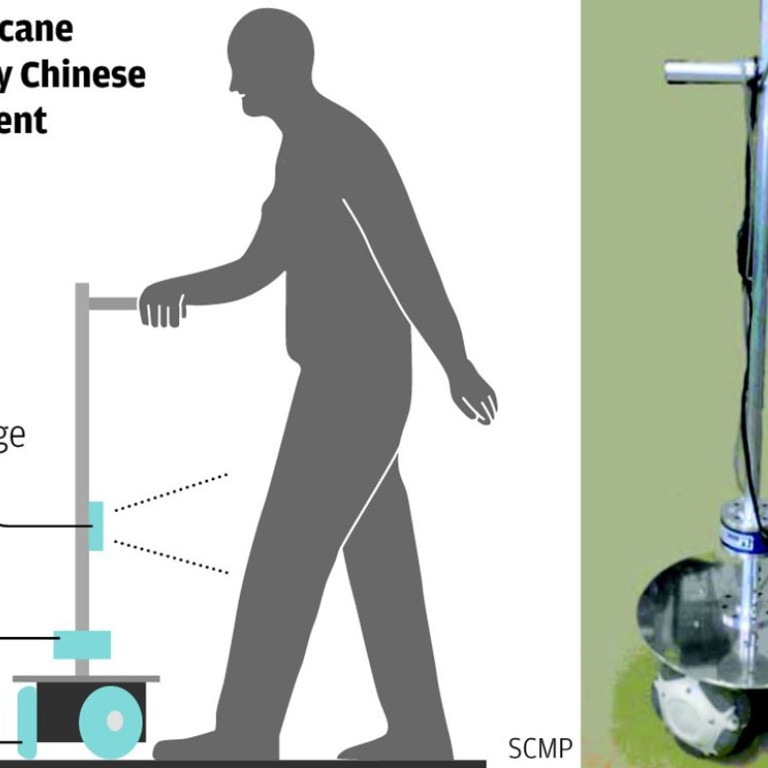
Smart walking cane could soon stand the test of time
The old gentlemen's walking cane may go "smart", under a new research project funded by the central government, and be able to catch a person before they stumble.
The old gentlemen's walking cane may go "smart", under a new research project funded by the central government, and be able to catch a person before they stumble.
Professor Huang Jian , a robotics scientist at Huazhong University of Science and Technology and leader of the smart cane project, recently received 800,000 yuan (HK$1 million) from the National Natural Science Foundation of China to bring the technology from the lab to everyday life.
The cane's intelligence comes from motion sensors and a central processing chip programmed with an original algorithm. Sensors, some in the cane and others worn by the user, capture a person's gait and generate a constant stream of data. A small computer in the cane analyses this information. If any abnormalities are detected, such as a loss of balance, an electric motor is activated to adjust the cane to help the walker counter the fall and prevent injury.
In reality, the smart cane is still a work in progress, Huang said.
"We have overcome most technical issues and obtained good results with a prototype in laboratory experiments," Huang said. "We are improving the technology. I hope it can be ready for commercial use in one or two years."
The team, comprising robotics scientists from the mainland and Japan, has spent six years in search of solutions to the problems posed in trying to perfect the smart cane, Huang said.
"The most difficult problem is predicting a fall and then coming up with a strategy to prevent it," he said.
Because people's walking habits vary, the cane must distinguish normal behaviour, such as stopping for a chat with an old friend, from the fall triggered by illness or accident. So far the cane's judgment was not 100 per cent accurate, Huang said.
In its bid to go smart, the cane design has acquired three small wheels at the lower end for stability and support.
Weight is another obstacle. With its high-capacity lithium battery, the cane at present is too heavy to be lifted or waved with a single hand.
Huang said that the smart cane would be particularly useful to able-bodied senior citizens.
"Many robotic devices for the elderly in the market today are designed for the disabled. They are too big and too clumsy for ordinary old people," he said. "Our cane can encourage senior citizens to go outdoors and avoid accidents."
Smart canes with different functions are being developed elsewhere. Professor Cang Ye, of the University of Arkansas in the United States, for instance, is working on a robotic walking stick for the blind, according to a report by the US National Science Foundation in August. The cane would use small cameras to guide the visually impaired.
Chen Jun , a retired public servant who lives in Beijing's Chaoyang district, said he would love to have a smart walking stick. Having suffered several strokes, the risk of falling was one of his biggest concerns.
"If no one gives me a hand, I can still count on the stick," he said. "Better, it can beam an emergency signal to inform my children or the nearest hospital."

